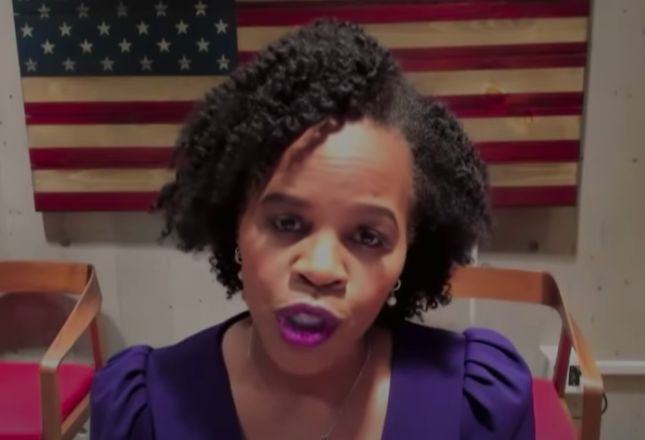Kim Janey has made history by becoming Boston’s first Black and first woman mayor in the 199 years of the city’s mayoral history.
Despite the celebration of Janey’s historic new position, the task ahead is not an easy one.
Can she finally begin to put an end to Boston’s longstanding segregation issue?
“Today is a new day. I stand before you as the first woman and first Black mayor of Boston, the city that I love,” Janey said during the City Hall event. “I come to this day with life experience that is different from the men who came before me.”
“To think, my teenage grandsons were born at a time when there had never even been a Black woman on our city council,” Janey said at the swearing-in ceremony. “Today, my 6-year-old granddaughter Rosie and other little girls can see themselves represented in Massachusetts’ highest court, the halls of Congress and now in the 55th mayor of Boston.”
Janey ascended to the role following the confirmation of Martin J. Walsh as U.S. labor secretary. She previously served as City Council president.
Boston is not known as one of the most racially diverse states in the country. In fact, it is often referred to as being heavily segregated. An estimated two-thirds of Boston’s Black residents live in just three neighborhoods Dorchester, Roxbury and Mattapan.
In 2019, the Boston Foundation published its Greater Boston Housing Report Card. The report exposed the extent of housing segregation in the Greater Boston area. According to the report, housing segregation has extended back decades to the days of redlining. It continues through present-day exclusionary zoning practices, adding that the state “suffers from a persistently high level of racial segregation” and is “hypersegregated” for Black residents.
“One of the most troubling findings in this report is the plummeting enrollment among Black families — who account for 84% of the decrease in enrollment,” Andrea Campbell, former city council president, wrote at the time in response to the report. “We shouldn’t be surprised by this, when, for example, roughly 80% of students in downtown Boston attend high-quality schools compared with only 5% of students in Mattapan; when housing costs are on the rise; and, when there’s been a failure to effectively address our most pressing structural and systemic inequities in BPS … .”
As recently as 1974, Boston residents fought against the desegregation of the school busing program. Violence erupted in Massachusetts on the opening day of classes as school buses carrying Black students were struck with eggs, bricks, and bottles. Police armed in combat gear were dispatched to hold back the angry, white mobsters.
A 2015 study from the Federal Reserve Bank of Boston found that the median net worth for white families in the city was nearly $250,000 compared with just $8 for Black families. Caribbean Black households had the highest median wealth with $12,000, only five percent of the wealth attributed to white households in the Boston Metropolitan Statistical Area (MSA.)
This week, however, Black Bostonians may finally have a real shot at equality.
Rep. Ayanna Pressley, the first Black woman to represent the state in the U.S. House of Representatives and Bostonians on the City Council, attended the ceremony.
“This is a proud day for the city of Boston and all Bostonians. But I know this has a special meaning for those who dared to dream a different future for our city across the generations. Today, that seemingly improbable dream is a reality,” she said as she introduced Janey.
Is Kim Janey the leader Boston needs to turn it all around?
Originally posted 2021-03-25 10:07:26.








